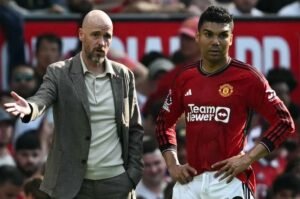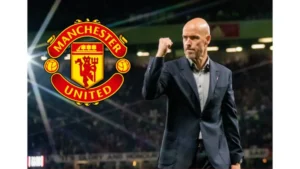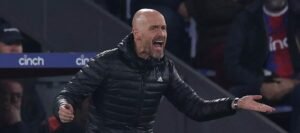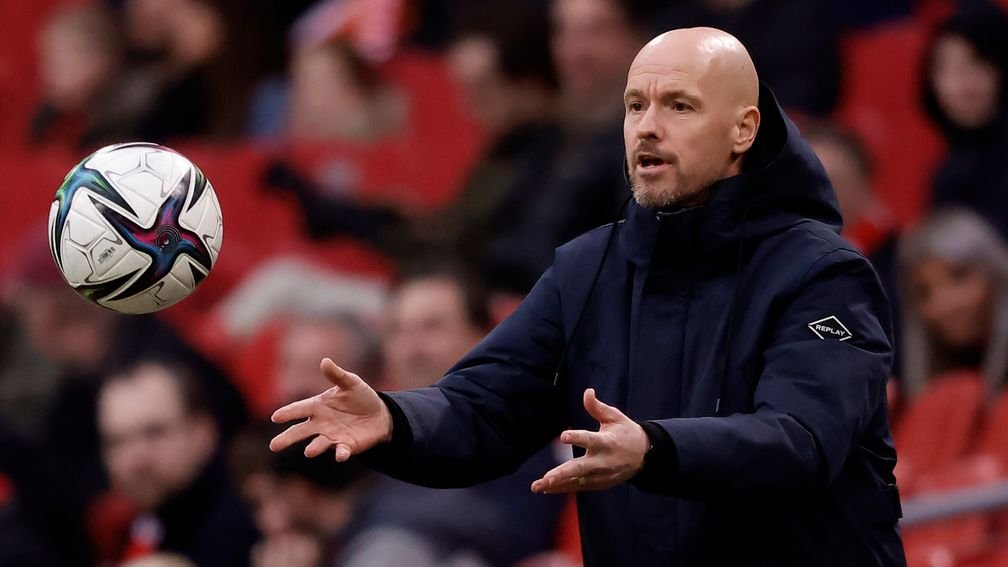Ten Hag’s Response
In a recent press conference, Erik Ten Hag addressed the concerns head-on. “Don’t judge now,” he urged, emphasizing the need for a longer-term perspective regarding the team’s development. He pointed out that rebuilding a club like Manchester United takes time and that immediate results should not overshadow the larger vision he has for the team.
Ten Hag’s remarks highlight the challenges of managing a high-profile club where results are often prioritized over the process. His approach, which has been methodical and focused on establishing a strong foundation, has not yielded the immediate results many had hoped for. Nevertheless, he remains steadfast in his belief that his methods will eventually bear fruit.
The Importance of Patience
The concept of patience in sports management is often contentious. Fans may grow restless, especially when a club like Manchester United struggles to perform at its historical level. However, Ten Hag’s insistence on patience is grounded in the understanding that success in football is rarely instantaneous. The rebuilding process involves integrating new players, instilling a cohesive playing philosophy, and fostering a winning mentality among the squad.
Transitioning a club from a period of underachievement to one of sustained success is no easy feat. Ten Hag is aware that Manchester United’s culture and history demand high standards, but he also understands that immediate solutions are not always viable. Players need time to adapt to new systems, and the managerial style must align with the squad’s strengths and weaknesses.

The Mental Aspect
Beyond tactics and player adaptation, the psychological impact of a winless streak cannot be overstated. Confidence erodes in a team that struggles to convert opportunities, and Ten Hag must also focus on nurturing a resilient mindset among his players. In his interviews, he has emphasized the importance of mental fortitude, encouraging his squad to learn from setbacks rather than dwell on them.
“Every challenge is an opportunity for growth,” Ten Hag remarked. “We need to take these experiences and transform them into learning moments.” By instilling a culture of resilience and accountability, he hopes to shift the narrative surrounding the team and inspire a turnaround.
Support from the Club and Fans
As Ten Hag navigates these choppy waters, the backing of the club’s hierarchy will be crucial. Manchester United is not just a football club; it is an institution with a storied history. The expectations from fans are sky-high, and the pressure can be immense. However, the club must also recognize the necessity of stability, especially in a league as competitive as the Premier League.
The support from the fans is equally vital. While frustration is palpable, a united front from supporters can foster an environment conducive to growth. Ten Hag has called for this solidarity, urging fans to remain patient and supportive. “We need you now more than ever,” he pleaded. “Together, we can turn this around.”

Understanding Ten Hag’s Tactics
Erik Ten Hag’s tactical philosophy is rooted in possession-based football, an approach that emphasizes control and strategic pressing. Drawing from his successful tenure at Ajax, where he cultivated a brand of attacking football that brought youth and flair to the forefront, Ten Hag’s methods prioritize a fluid interplay among players. However, the transition from Ajax’s model to the high-stakes environment of the Premier League has proven more challenging than anticipated.
The hallmark of Ten Hag’s style is a relentless press, designed to win the ball back quickly and exploit opposition weaknesses. However, this requires a high level of understanding among players, a factor that has been lacking as the squad has grappled with injuries and inconsistent performances. Key players have struggled to adapt to the intensity and tactical nuances demanded by Ten Hag, leading to disjointed displays that have hindered the team’s ability to execute his game plan effectively.
FAQs
1. What has caused Manchester United’s winless streak?
The winless streak can be attributed to a combination of factors, including missed opportunities, defensive lapses, and the challenge of integrating new players into the system.
2. How does Erik Ten Hag plan to turn things around?
Ten Hag is focused on maintaining a long-term vision for the team. He is committed to fine-tuning tactics, improving player performance, and fostering a winning mentality.
3. What is the fans’ reaction to the current situation?
Fans are divided; while some support Ten Hag’s call for patience, others express frustration over the lack of results.
4. Will Erik Ten Hag remain in charge if results do not improve?
Ten Hag’s future depends on the support he receives from the board and the overall performance of the team. If results continue to falter, questions about his position may arise.
5. What can fans expect in the coming matches?
Fans can expect Ten Hag to implement tactical adjustments aimed at breaking the winless streak and rebuilding the team’s confidence.
Conclusion
In conclusion, Erik Ten Hag’s defense of his approach to managing Manchester United amid a winless streak illustrates the complexities of football management. While the pressure for immediate results looms large, the call for patience and understanding is crucial. As the season progresses, the hope remains that Ten Hag’s vision will lead Manchester United back to the pinnacle of success it once enjoyed. For now, the focus must remain on collective efforts to turn the tide and restore pride to a storied football club.



